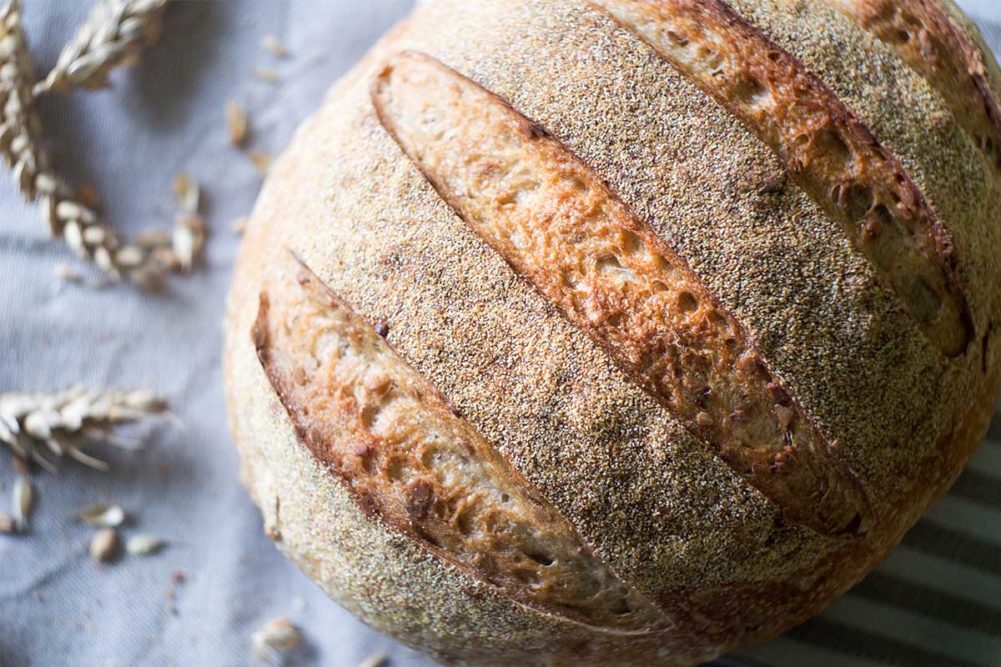While traditional breads like white and wheat still lead the way, many other varieties are emerging, including gluten-free breads and those made with alternative grains, as well as plenty of artisan options. These breads are a go-to for a growing number of consumers, but their stiff doughs and delicate processing requirements can make them a headache when dividing.
As a result, suppliers are bolstering their dividers to offer a gentler handle of these doughs.
“Divider technology has had to evolve as customers demand better quality dough structure,” explained John Giacoio, vice president of sales, Rheon USA. “Pushing dough through a pocket and ejecting it degasses the dough, and it needs to recover from this damage.”
Rheon’s stress-free dividers allow bakers to eliminate this recovery step where the dough must rest.
“Because the process is stress-free you can then allow the product to proof and then go right to the oven,” he said. “Eliminating the recovery stage/intermediate proofer allows for less equipment, more space and better-quality breads.”
Nate McDermott, director of customer service and technical sales of WP Bakery Group USA , noted that WP Bakery Group’s dividers now use a combination of servo motors to sense the pressure applied to the dough as it’s pushed into the dividing chamber, preventing any damage to the dough structure, as well as hydraulic pressure valves to reduce strain.
Extrusion dividers, such as Reiser’s Vemag, have also advanced to handle a range of doughs that could previously only be done with pocket dividers, John McIsaac, vice president of strategic business development at Reiser, pointed out.
For abrasive, particulated and acidic doughs, Gemini’s 700 and 900 series dough dividers in the “Sour Resistant” execution offer a dough bed made from stainless steel to increase resistance to these doughs.
“A choice of narrow to wide partitions between pistons can accommodate stiff to soft sticky doughs,” said Jerry Murphy, vice president of sales, Gemini Bakery Equipment.
Bakers must ensure their divider is equipped in the best possible way to handle a wide variety of doughs if needed, noted Luuk Hooijmaijers, sales manager, Royal Kaak, which also sells their dividers through Rondo North America. This includes using a multi-pocket configuration and oiling the hopper to optimize the flow of dough inside the machine.
“Kaak has either special execution of its divider to be able to divide stiffer doughs in the best possible ways with the best possible weight accuracy,” he said. “In other cases, like for baguettes for example, Kaak designed a specific divider for the Dough Assist Mono Pocket for that purpose.”
For stiff organic doughs, AMF has newly designed augers on its ADD-S divider for better handling while still providing high speed and accuracy for white and wheat doughs.
Bruce Campbell, vice president of dough processing technologies, AMF Bakery Systems, added that precision control of extrusion dividing, including pressure and flow rates, via new AMF Flex Technology allows bakers to divide a wide range of high-end buns and rolls.
“Previously, high-quality burger buns needed to be made on a volumetric system to ensure volume and grain structure,” he explained. “We met the needs in growing QSR chains targeting consumers wanting a better burger.”
Bagel doughs can also be a challenge as they tend to be stiffer than traditional doughs. For bagel dividing, the key is in the formula and making sure water absorption doesn’t get too low, said Ken Hagedorn, vice president, bakery sector, Handtmann.
“If it gets too stiff, you’re really working the dough a lot more than you want to work and building up a lot of friction. … We can do a bagel dough, but a lot of that is determined by the water absorption level,” he said.
Gemini offers horizontal bagel dividing and forming systems.
“We offer a range of semi-automatic and automatic systems from 7,000 bagels per hour to 50,000 regular bagels per hour or 42,000 mini bagels per hour,” Murphy said.
In recent years, bakers have also begun making stress-free bagels that are changing up the traditional bagel formula, Giacoio observed.
“The stress-free bagels are open-cell structure instead of a traditional tight, dense structure I grew up on in the New York area,” he said.
Bakers today perform a balancing act when it comes to quick, gentle and flexible processing of their baked goods, but the latest in dividers can help them pull it off with success.
This article is an excerpt from the December 2023 issue of Baking & Snack. To read the entire feature on Dividing, click here.





